Tommy Tuberville welcomes Nikki Haley to 2024 presidential race
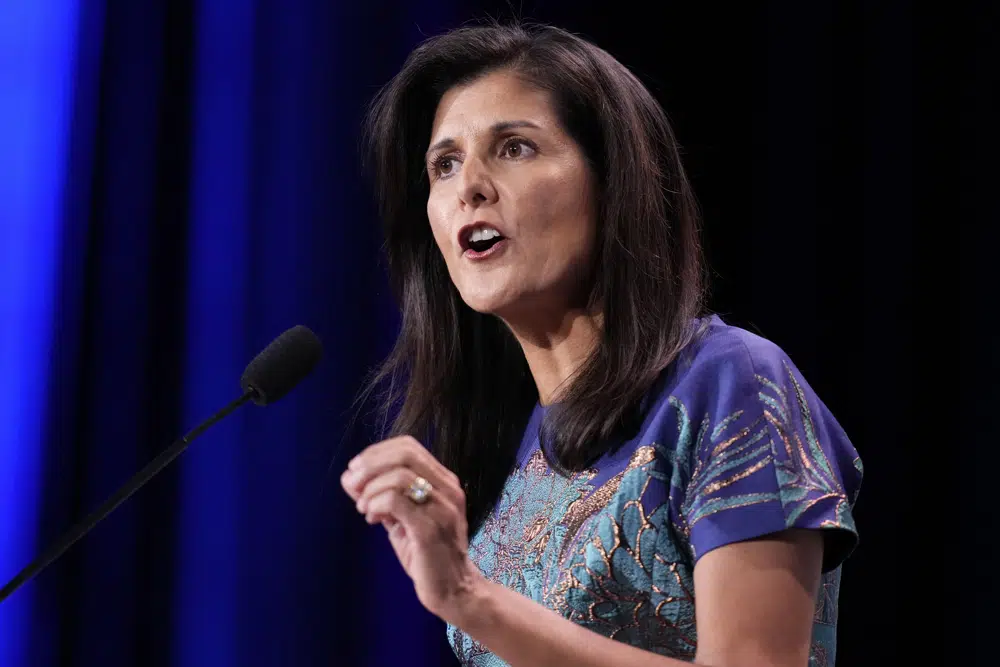
On Monday, former South Carolina Governor and UN ambassador Nikki Haley announced her candidacy for the Republican nomination for President of the United States. U.S. Senator Tommy Tuberville, who has already announced his endorsement of former President Donald Trump, welcomed Haley’s entrance into the 2024 presidential race. Tuberville told reporters that she would be a “great candidate.” Tuberville favors a large GOP primary field and said that he has recently spoken with Trump and told the former President that he hopes “they all get in.” “He needs the challenge as well as anybody,” Tuberville said. “They need to work for it. They need to fight for it.” In the 2020 election, President Trump endorsed Tuberville in his Republican primary battle for U.S. Senate with former Trump Attorney General Sen. Jeff Sessions. Tuberville had spent forty years as a teacher and coach – including stints as head football coach at Ole Miss, Auburn, Texas Tech, and Cincinnati – prior to that 2020 first run for public office. At this point, the only announced GOP candidates for the Republican nomination for 2024 are Haley and Trump, but that is expected to change quickly. Florida Gov. Ron DeSantis, former Vice President Mike Pence, and former Secretary of State Mike Pompeo are widely believed to be seriously looking at entering the race. According to the Hill, former Arkansas Gov. Asa Hutchinson, New Hampshire Gov. John Sununu, former Maryland Gov. Larry Hogan, U.S. Sen. Rick Scott, and Virginia Gov. Glenn Youngkin are also possible presidential candidates. GOP Senators who oppose a third Trump presidential run fear that a crowded GOP primary field makes it easier for Trump to emerge as the eventual GOP nominee. “Look, we were all concerned with the fact that we had 15 or 16 or 17 individuals vying for attention in the last one,” said Sen. Mike Rounds (South Dakota) told the Hill referring to the 2016 election. “We really don’t want to see that happen again. We just don’t.” U.S. Sen. Katie Britt was endorsed by Trump in her 2022 GOP primary battle with then-Congressman Mo Brooks and war veteran and defense contractor Mike Durant. Britt, however, cannot make an endorsement in the Presidential primary because she is serving on the national Republican steering committee. Trump faced a crowded field in 2016 that included U.S. Sens. Ted Cruz, Marco Rubio, Rand Paul, Rick Santorum, and Lindsey Graham, as well as former Florida Gov. Jeb Bush, former Ohio Governor John Kasich, former Arkansas Gov. Mike Huckabee, then-New Jersey Gov. Chris Christie, businesswoman Carly Fiorina, former Virginia Gov. Mike Gilmore, former New York Gov. George Pataki, then Louisiana Gov. Bobby Jindal, and Dr. Ben Carson. Trump won the 2016 Alabama Republican Primary despite the crowded field. Trump went on to win the Republican nomination and then beat former Secretary of State Hillary Clinton in the general election. Trump was unseated by former Vice President Joe Biden in 2020. Biden appears to be virtually unopposed at this point for the 2024 Democratic nomination for President. The 2024 Alabama Republican Primary is only 55 weeks away on March 5. DeSantis will speak to the Alabama Republican Party in Birmingham on March 9. To connect with the author of this story, or to comment, email brandonmreporter@gmail.com.
What to watch during Donald Trump’s State of the Union address
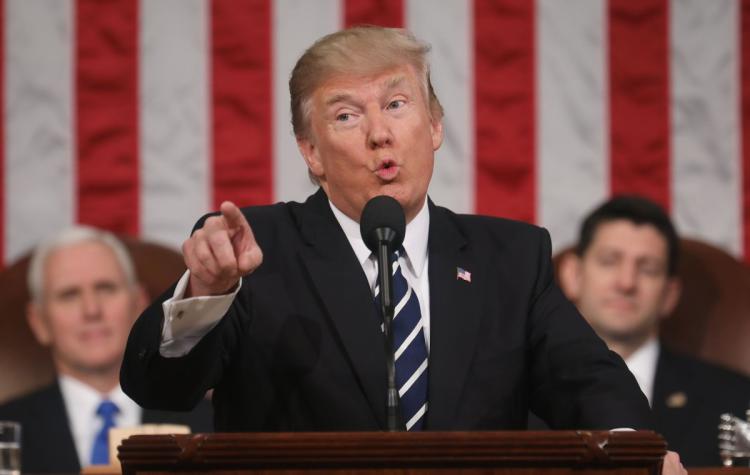
President Donald Trump, a uniter? That’s the approach advisers say Trump will take in his first State of the Union address delivered under divided government. A president who’s mocked everyone from women to the U.S. intelligence community, foreign leaders and members of Congress is expected to speak Tuesday night of setting aside hard feelings and moving forward. For an idea of how that goes over, keep an eye on House Speaker Nancy Pelosi, seated behind him and over his shoulder, and the record number of women and minorities who dot the audience after the November 2018 elections. And listen for how enthusiastically Republicans applaud Trump’s outreach. AMPED ATMOSPHERE Everything about the event, including the date, is framed by the longest government shutdown in history. Pelosi suggested Trump postpone the scheduled Jan. 29 speech until the government reopened. Trump, who commands the armed forces, then put off Pelosi’s trip overseas on a military plane. She then formally yanked the welcome mat by refusing to hold a vote to allow Trump to address a joint session of Congress. The tug of war ended Jan. 25, when Trump lifted the shutdown without getting new money for the wall he wants to build on the U.S.-Mexico border. Pelosi then re-invited Trump to deliver the address on Tuesday and he agreed. Trump has vowed to get his border wall and has threatened to declare a national emergency to pay for it without Congress’ approval. ___ TRUMP’S ENTRANCE The pomp begins the moment House Sergeant-at-Arms Paul Irving yells from the back of the chamber, “Madam Speaker, the president of the United States!” Trump will then walk down the center aisle flanked by Republican leaders, shaking hands with many of the lawmakers who grabbed seats earlier in the day in hopes of making it into photos and video with the president. Republicans will burst into raucous hoots and applause. Not likely to extend a hand to Trump: The star of the Democratic freshmen, Rep. Alexandria Ocasio-Cortez of New York. “But I’ll be there and I’ll be present to see and listen to what’s going on,” she told TMZ. ___ WHO’S IN THE ROOM It’s a rare moment when members of the three separate and co-equal branches of government meet under the same roof. The night’s key visual will be Pelosi sitting behind Trump along with Vice President Mike Pence. All 535 members of Congress are invited, along with members of Trump’s Cabinet and the justices of the Supreme Court, led by Chief Justice John Roberts. The balcony tells its own story. To the left, Trump will nod to first lady Melania Trump and the administration’s guests. Seated elsewhere in the gallery will be lawmakers’ invited guests, many chosen to send messages reinforcing each party’s agenda. This year the guests include people who have suffered because of the shutdown and those pushing for tougher immigration laws. ___ DESIGNATED SURVIVOR It’s not just a television show. By tradition, one Cabinet secretary is closeted away at a secure, undisclosed location to ensure continuity of government in case disaster strikes while government leaders attend the speech. Agriculture Secretary Sonny Perdue was last year’s “designated survivor.” But Trump’s choice this year could be limited by the number of “acting” secretaries in the Cabinet. Only Senate-confirmed secretaries (and natural-born citizens) in the line of succession to the presidency can assume control of government in a crisis. That means Acting Defense Secretary Patrick Shanahan, Acting Attorney General Matthew Whitaker, Acting Interior Secretary David Bernhardt and Transportation Secretary Elaine Chao can’t fill the role of designated survivor. Chao is a naturalized U.S. citizen who was born in Taiwan. ___ WHAT’S HAPPENING IN THE AUDIENCE Look for women on the Democratic side of the aisle wearing white, the color favored by early 20th century suffragettes and now worn by those who want Trump to easily spot his new opponents. Listen for boos, hisses or silence from the newly empowered Democratic side when Trump speaks. Note whether Trump can raise everyone’s gaze and hit feel-good themes that inspire both sides to applaud. For instance, who’s against “unity?” Both Trump and Georgia Democrat Stacey Abrams, who will deliver the rebuttal, have used that idea to preview their remarks. ___ DEMOCRATS RUNNING FOR PRESIDENT Nearly a dozen Democrats who dream of succeeding Trump serve in Congress. They will be sizing up the president and each other as well. Watch the body language among the would-be Democratic presidents: Who’s talking to whom, who gets or gives a hug or a kiss, whose heads are bowed in hushed conversation. Also watch their body language toward Trump. Cameras will be trolling the audience — and the presidential dreamers know it — to see if they can be caught responding with an eye roll or head shake. ___ ABRAMS AFTER WORDS Senate Democratic leader Chuck Schumer chose Abrams to deliver the rebuttal in a nod toward the black women who anchor the Democratic Party. Doing so elevates her among Democrats as the leaders woo Abrams to run for the Senate. Abrams also will provide a contrast with Trump, who has a history of making racially inflammatory remarks. Abrams is filling a role that for others has proven thankless and generated brutal reviews. Republican Sen. Marco Rubio’s lunge for a water bottle became a meme after he delivered his party’s response in 2013. Then-Louisiana Gov. Bobby Jindal, a Republican, was panned for being dull in 2009. Former New Jersey Gov. Chris Christie, appearing on “The Late Show with Stephen Colbert,” said he twice turned down offers to deliver the rebuttal. Why? “Because it sucks,” he said. … Follow Kellman and Superville on Twitter at twitter.com/APLaurieKellman and twitter.com/DSupervilleAP Republished with permission from the Associated Press
What does Jeb Bush get for $20 million in TV ad buys? Not much.

Jeb Bush and his supporters have spent more than twice that of any other candidate or outside group on TV ads in the 2016 presidential race. And what does the former Florida governor get for nearly $20 million, asks Mark Murray of NBC News. Apparently, not much. Bush’s poll numbers are currently languishing in the single digits both nationally and in the early primary states. Right to Rise, the pro-Bush super PAC, has made $19.5 million in ad spending for Iowa, New Hampshire and South Carolina. Murray notes that the campaign also spent another $438,000. In comparison, the 501c4 organization supporting fellow Floridian Marco Rubio – Conservative Solutions Project – paid half that amount, $8.4 million to date. Hillary Clinton’s presidential campaign, on the other hand, has spent $8.1 million, while her supporting Super PAC spent about $199,000. To put those numbers further in context, campaigns receive substantial discounts on TV ad time, whereas Super PACs and other outside groups may have to pony up to four times as much for similar ad space. Murray, along with NBC News partners SMG Delta, have calculated who spent what in the 2016 presidential ad wars – a not-quite-perfect way to measure winners of the secret advertising primary. Through Nov. 21, the leaders are Bush with $19.9 million ($19.5 million from Right to Rise Super PAC, $438K from campaign), followed by Rubio with $8.4 million (all from outside group Conservative Solutions Project), Clinton with $8.3 million ($8.1 million from campaign, $199K from Priorities USA Super PAC) and Ohio Gov. John Kasich with $7.3 million (all from two outside groups). After Kasich, comes New Jersey Gov. Chris Christie with $5.7 million ($5.3 million from America Leads Super PAC, $407K from campaign), Louisiana Gov. Bobby Jindal – who just dropped out of the race – with $3.3 million (all from outside groups), Vermont Sen. Bernie Sanders with $3 million (all from his campaign), South Carolina Sen. Lindsey Graham at $1.7 million ($1.6 million from Super PAC, $100K from campaign) and retired neurosurgeon Ben Carson with $1.5 million (all from his campaign). For the week of Nov. 15-21, the biggest spenders were Bush with $2 million, all from his Super PAC; Sanders with $940,000, all from his campaign; Clinton with $741,000, all from the campaign; Rubio with $619,000, all from Conservative Solutions; Kasich with $352,000, all from his supporting Super PAC New Day for America, Christie with $313,000, all from America Leads Super PAC; and Carson with $214,000, all of which came from his campaign.
Bobby Jindal suspends 2016 presidential campaign
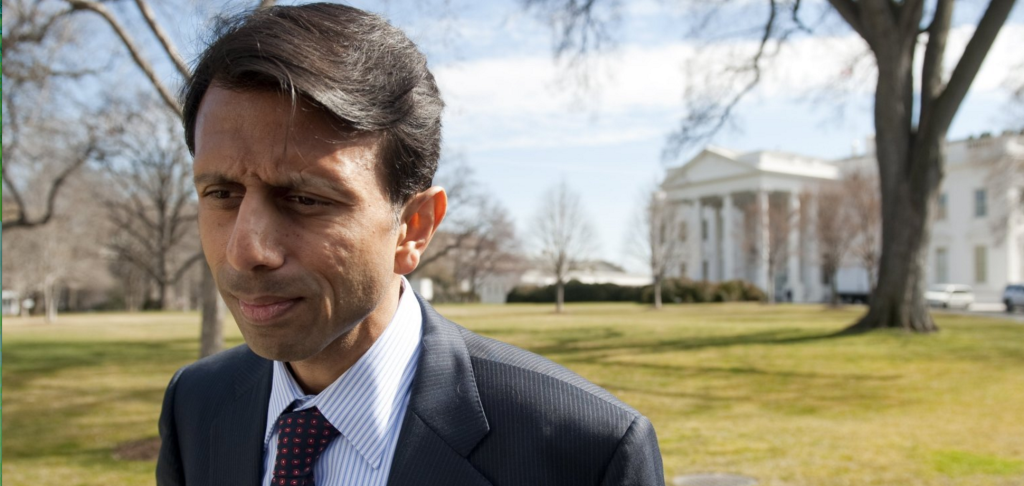
Louisiana Gov. Bobby Jindal Tuesday announced he was ending his presidential bid, saying “this is not my time.” Jindal is the third Republican to suspend his campaign, following former Texas Gov. Rick Perry and Wisconsin Gov. Scott Walker dropped out earlier this year.
Donald Trump says he would consider closing certain mosques
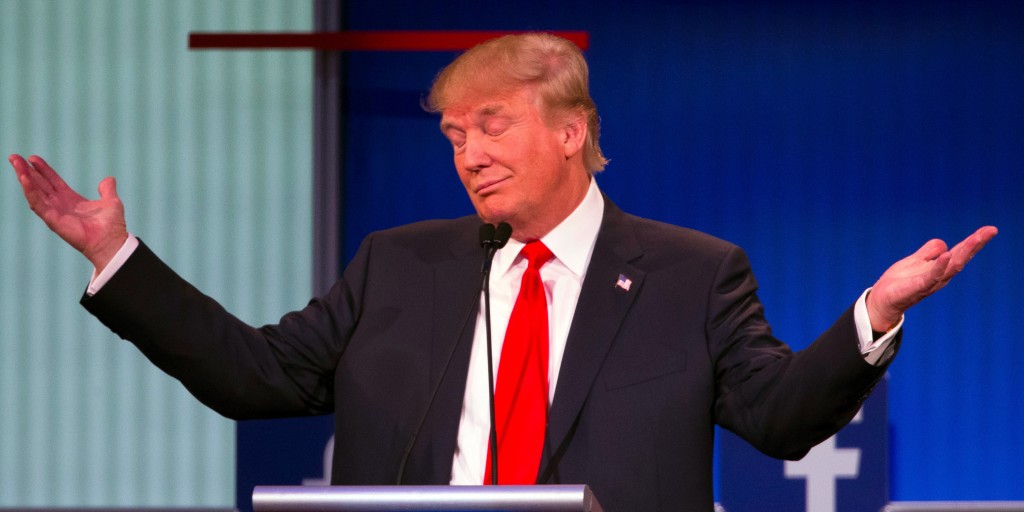
Republican presidential candidate Donald Trump says he would consider closing U.S. mosques with radical leadership because of the Paris attacks if he were elected president. “I would hate to do it, but it’s something that you’re going to have to strongly consider,” Trump told MSNBC in a phone interview Monday. Trump and his rivals have been working to articulate how they would respond to last week’s attacks, which killed 129 people and left hundreds wounded. Trump, who has been pushing for a more aggressive response, also said Americans must reassess some of their civil liberties in response to growing threats from the Islamic State group. “We have to be much tougher,” he said in another interview on CNBC. “We are going to have to give up certain privileges that we’ve always had.” “Surveillance took a big turn over the last 48 hours,” he added. “Forty-eight hours ago everybody was saying, ‘Well we want our freedoms, we don’t want this to happen.’ And now, all of sudden, people are saying, ‘Hey listen, you can listen to my phone conversations.’” That surveillance, he argued, should include intelligence-gathering in and around mosques. “Well you’re going to have to watch and study the mosques because a lot of talk is going on at the mosques,” said Trump, who complained that New York City, where he lives, has ramped down its efforts to infiltrate places of Muslim worship. Trump appeared to be referring to the New York Police Department‘s Demographics Unit, which The Associated Press reported in 2011 was spying on Muslims and mosques around the city with help from the CIA. The group assembled databases on where Muslims lived, shopped, worked and prayed, infiltrated Muslim student groups, put informants in mosques and monitored sermons. The NYPD, under Mayor Bill de Blasio, announced it had abandoned the program in April of last year following lawsuits and complaints. Trump told a weekend rally that things would have turned out differently in Paris had the victims of the attacks been armed with guns. He repeated that assertion in the CNBC phone interview. “Had there been some guys with a gun, there would have been a shoot-out and probably the primary people that got whacked would have been the killers,” he said. “Had there been other people carrying weapons, you would have had a lot different story, believe me.” Trump criticized President Barack Obama for not moving earlier to destroy the Islamic State sites that France bombed over the weekend. He said the U.S. should be going more aggressively after the group’s oil and financing and pressing other countries to intensify their fighting against the radicals. Republished with permission of The Associated Press.
Ben Carson: Congress should stop funding refugee resettlement
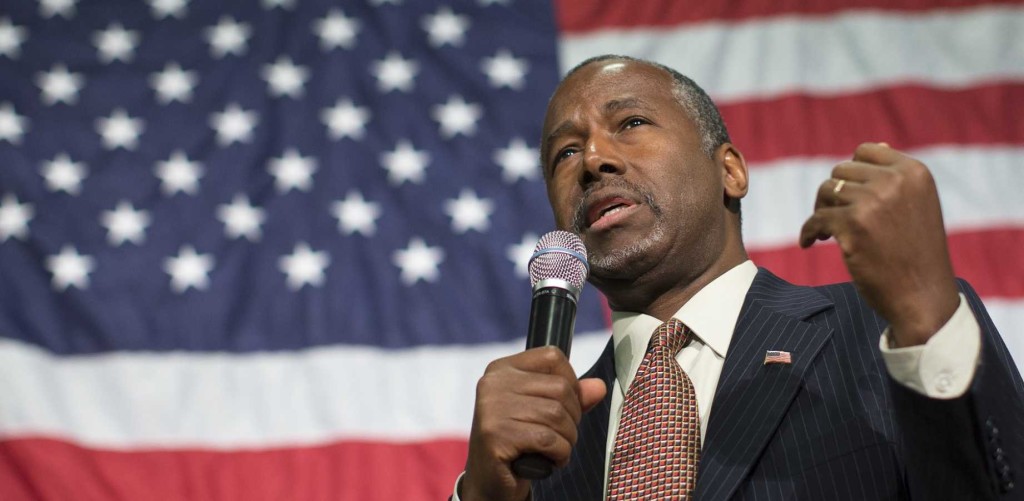
Republican presidential candidate Ben Carson is calling on Congress to withdraw funding to resettle Syrian refugees in the United States, arguing there is no credible way to tell the difference between an Islamic State militant and an innocent citizen fleeing war. In a letter to House Speaker Paul Ryan, Carson urged congressional Republicans to “extinguish” Syrian resettlement programs, saying the United States “cannot, should not and must not accept any Syrian refugees.” Carson joins other GOP presidential candidates expressing caution or outright opposition to resettling Syrian refugees in the U.S. Elsewhere across the political landscape, at least 10 governors, including Michigan and Alabama, have taken action to block resettlements or said they are exploring their legal options. Members of the Republican-controlled Congress, too, said on Monday they will try to use must-pass government spending legislation to block President Barack Obama‘s plans to increase the flow of Syrian refugees into the U.S. Obama earlier this year announced plans to accept as many as 10,000 Syrian refugees this fiscal year, up from 2,000 in fiscal 2015. The State Department manages refugee resettlement with the aid of private organizations like Catholic Charities. Democratic presidential candidates have called for the U.S. to continue to let in Syrian refugees, but only after proper background checks. Carson suggested no such practical solution exists where Syrian migrants are concerned. “This is a relatively unique situation for our country,” he said. Carson, who is near the top of many GOP presidential preference polls, joins Texas Sen. Ted Cruz, former Arkansas Gov. Mike Huckabee and Florida Sen. Marco Rubio as candidates who have called for closing American borders to Syrians. Former Florida Gov. Jeb Bush suggested over the weekend that the United States restrict admission only to Syrian Christians. Louisiana Gov. Bobby Jindal on Monday issued an executive order intended to block Syrian refugees from being resettled in his state. Obama on Monday chided Republicans he says are effectively imposing a “religious test” on people fleeing war. “That’s not American. That’s not who we are,” the president said. Carson retorted, “Of course we don’t apply religious tests, but we should apply an ideological test. I would be very reticent to bring in people ideologically opposed to the ideals of America.” He did not explain the distinction between testing for ideology and religious belief. As for the Syrian refugees already in the United States, Carson said, “I would watch them very carefully.” Carson’s idea of cutting off funding would face roadblocks on Capitol Hill, particularly in the Senate, where Republicans do not have the votes to stave off a Democratic filibuster. But House Budget Chairman Tom Price issued a statement on Monday saying the United States “must suspend our refugee program until certainty is brought to the vetting process.” Republished with permission of The Associated Press.
Bobby Jindal talks radical Islam, immigration at #SunshineSummit

Louisiana Gov. Bobby Jindal took a scattershot approach in his Sunshine Summit speech Saturday, bouncing between political correctness, immigration and national security. He first chided fellow candidate Donald Trump, however, for equating Ben Carson‘s childhood “pathological temper” to a child molester in comments to CNN. Saying it was an “insane comment,” Jindal told the crowd, “I’m for all an exchange of ideas, (but) folks, there is a line we should not cross.” He also called out college students at the University of Missouri for recent protests, supposedly sparked by racially charged incidents, that led to the resignation of the school president. Reporters trying to cover the protests have been blocked or harassed by campus activists. Liberal students fail to appreciate the principles of free speech, Jindal said: “You don’t have a right not to be offended.” He quickly added that he shouldn’t be surprised since President Obama “has taught us all to be victims.” Turning to the thicket of immigration, Jindal — the son of Indian immigrant parents — said the American dream is “not having the government take care of you. He told the story of his parents not having the health coverage to pay for his birth, so his father offered to write a check every month until the hospital bill was paid. Jindal’s message to those who want to be Americans: “Come legally, learn English and when you get here, roll up your sleeves and get to work.” Finally, he offered solidarity with the victims of the Paris attacks on late Friday and early Saturday, saying the problem isn’t Islam, but “Islam has a problem (and) the problem is radical Islam.” “Our friends don’t trust us and our enemies … don’t fear us,” Jindal warned. “It’s time to send a message … you’ve got to kill evil terrorists before they come here and kill us first.” Jindal’s tough talk comes amid his averaging 1 percent in national polls, with his campaign facing a “major cash crunch,” The Associated Press reported. “His financial disclosure forms show he’s finding ways to campaign cheaply, bunking at affordable hotel chains,” the AP report said.
Paris attacks cast a dark cloud over Florida GOP’s Sunshine Summit

The hundreds of activist Republicans attending the Florida GOP’s Sunshine Summit are waking up to a different world than the one they went to sleep in last night. A series of attacks targeting young concertgoers, soccer fans and Parisians enjoying a Friday night out at popular nightspots killed at least 120 people in the deadliest violence to strike France since World War II. The assailants’ weapons were those of war: automatic rifles and suicide belts of explosives. The killing was indiscriminate, spread across a swath of the city, in at least six different sites. An ordinary Friday night in Paris transformed into a bloodbath. The word Parisians used over and over as they tried to make sense of the horror was “carnage.” At the packed Bataclan concert hall in eastern Paris, the attackers opened fire on a crowd waiting to hear American rock band Eagles of Death Metal perform. One witness told France Info radio he heard them yell “Allahu akbar” — God is great in Arabic — as they started their killing spree and took hostages. The city’s police chief, Michel Cadot, said the assailants also wore explosive belts, which they detonated. About a mile from there, attackers sprayed gunfire at the Belle Equipe bar, busy as ever on a Friday night with patrons unwinding from their week. One witness, also speaking to French radio, said the dead and wounded dropped “like flies” and that “there was blood everywhere. You feel very alone in moments like that.” By now, participants of the Sunshine Summit have learned the news, checked in on social media. They’ve seen images like the one accompanying this post. Friday, the Republicans in Orlando were there to hear from Marco Rubio and Jeb Bush and Donald Trump and Ted Cruz. Saturday, it’s very likely they will hear declarations of war. The Paris attacks took place during the heart of the first day of the Sunshine Summit. The on-message candidates probably did not know enough to comment on them as they spoke to the crowd. However, as news of the attacks spread, the presidential and U.S. Senate aspirants began to condemn the terrorist’s actions. Ben Carson was the first. Carson said currently there’s no leadership in America to give our allies confidence we’d follow through with a military response – suggesting Obama isn’t up to the task. You can probably expect more comments like Carson’s at the second day of the Sunshine Summit. Comedian John Morgan is scheduled to speak to the Summit at 10 a.m. I wonder if his appearance is still appropriate? U.S. Rep Ron DeSantis is slated to speak Saturday morning. He has an opportunity in his speech to demonstrate what kind of statesman he is in the face of the attacks. Presidential candidates Rick Santorum, Jim Gilmore, Bobby Jindal, Rand Paul, Chris Christie, and John Kasich all will address the Summit scheduled Saturday. Count on Santorum and Jindal to let slip the dogs of war. What will be interesting to hear is what Paul, Christie, and Kasich have to say. Will Paul stick to his isolationism at a moment when our oldest ally needs us? Can Christie or Kasich use the Summit’s platform to show what kind of commander-in-chief they would be during a crisis like this? Florida GOP Chairman Blaise Ingoglia certainly did not expect a world-changing event like the Paris attacks to occur during the two-day Summit he planned. But such an event has happened. And that means it’s not just the 1,000 Republican activists there who are listening to what the candidates say. The audience for the Sunshine Summit is now much larger. Material from The Associated Press was used in this post. Photo credit: Anne Sophie Chaisemartin via AP.
For Ben Carson, debates have played limited role in his rise

For some Republican presidential candidates, the party’s first three primary debates have been pivotal proving grounds that have strengthened their campaigns or shaken their supporters. Ben Carson isn’t among them. The famously mild-mannered Carson has largely avoided making headlines in the widely watched televised events, often willing to cede the spotlight to more verbose rivals and finding himself overshadowed in policy discussions. Yet the retired neurosurgeon’s standing with voters in preference polls has only gotten better. “The political language and the traditional prism through which we evaluate candidates essentially does not apply to Ben Carson,” said Phil Musser, a Republican strategist. It’s unlikely Carson will again shrink into the background Tuesday when the eight leading GOP candidates meet in Milwaukee for their fourth debate. Now viewed as a front-runner for the Republican nomination, Carson faces intense scrutiny about the veracity of his celebrated biography, which has been central to his connection with voters. His campaign manager, Barry Bennett, said Carson was prepared to be far more aggressive in the debate than he has been in the past and is “a lot more fired up” after facing several days of questions about his past. “He will vociferously stand up for himself,” Bennett said. “He’s not going to attack anybody. But if somebody goes after him, they’re going to see a lot more ‘back at ’em’ than they ever saw before.” While pieces of Carson’s background had been challenged earlier in the campaign, the questions ballooned last week after CNN reported it could not find friends or confidants to corroborate the story, told in his widely read autobiography, of unsuccessfully trying to stab a close friend when he was a teenager. Later in the week, POLITICO examined Carson’s claim of having received a scholarship offer to attend the U.S. Military Academy and The Wall Street Journal said it could not confirm anecdotes told by Carson about his high school and college years. In a GOP primary where bashing the media is in vogue, Carson could come out ahead if the moderators of Tuesday’s debate on Fox Business Network are seen as unfairly piling on. Carson’s campaign was active in the effort to change how the party’s debates are run after several candidates expressed unhappiness with moderators from CNBC at an event two weeks ago. Yet some Republicans say Carson must walk a fine line between defending himself, and sticking with the calm and quiet demeanor that has so far been a draw for voters. “Will viewers and voters see the unflappable surgeon they have been inclined to support or will a more combative Carson emerge?” said Matt Strawn, the former chairman of the Iowa Republican Party. “If the latter, his standing may well suffer if he appears to be yet another politician trying to out-outrage the others on stage.” Carson’s response will likely be influenced by the way his rivals handle the matter. So far, most have sided with Carson, saying he’s been unfairly treated by the media. “They went too far with Ben Carson,” Kentucky Sen. Rand Paul said Monday. “It’s just kind of silly. They are trying to paint it to his integrity and I think that that’s not fair.” The most likely candidate in the main event to challenge Carson is Donald Trump. The real estate mogul has been at the top of Republican primary polls for months, but began to level sharp criticism at Carson after he started challenging Trump’s front-runner status. Trump has seized on the inconsistencies of Carson’s biography, repeating a long list of examples of potential exaggerations and unproven claims during recent television appearances. That includes repeating Carson’s assertion that he had a “pathological” problem with his temper. Speaking in front of thousands at a rally in Springfield, Illinois on Monday evening, Trump sharpened his criticism of Carson in a preview of potential lines of attack. “With what’s going on with this election, I’ve never seen anything like it. People are getting away with murder,” said Trump, betraying his first signs of exasperation at Carson’s success in the polls. “If you try and hit your mother over the head with a hammer, your poll numbers go up. I never saw anything like it!” Also in the main debate Tuesday are Marco Rubio and Ted Cruz, a pair of senators enjoying a burst of momentum following their strong performances in the last contest; former Florida Gov. Jeb Bush, who is in the midst of an attempted campaign reset; and businesswoman Carly Fiorina and Ohio Gov. John Kasich. Missing from the lineup are New Jersey Gov. Chris Christie and former Arkansas Gov. Mike Huckabee. Both were dropped from the top-tier debate with low poll numbers in national surveys, sparking criticism for the way networks hosting the debates have determined participation. Christie and Huckabee will instead appear in an earlier undercard debate, along with Louisiana Gov. Bobby Jindal and former Pennsylvania Sen. Rick Santorum. “We’re not whiners and moaners and complainers in the Christie campaign,” Christie said on Fox News Monday. “Give me a podium, give me a stage, put the camera on, we’ll be just fine.” Republished with permission of the Associated Press.
Unpopular GOP candidates mulling when to pack it in
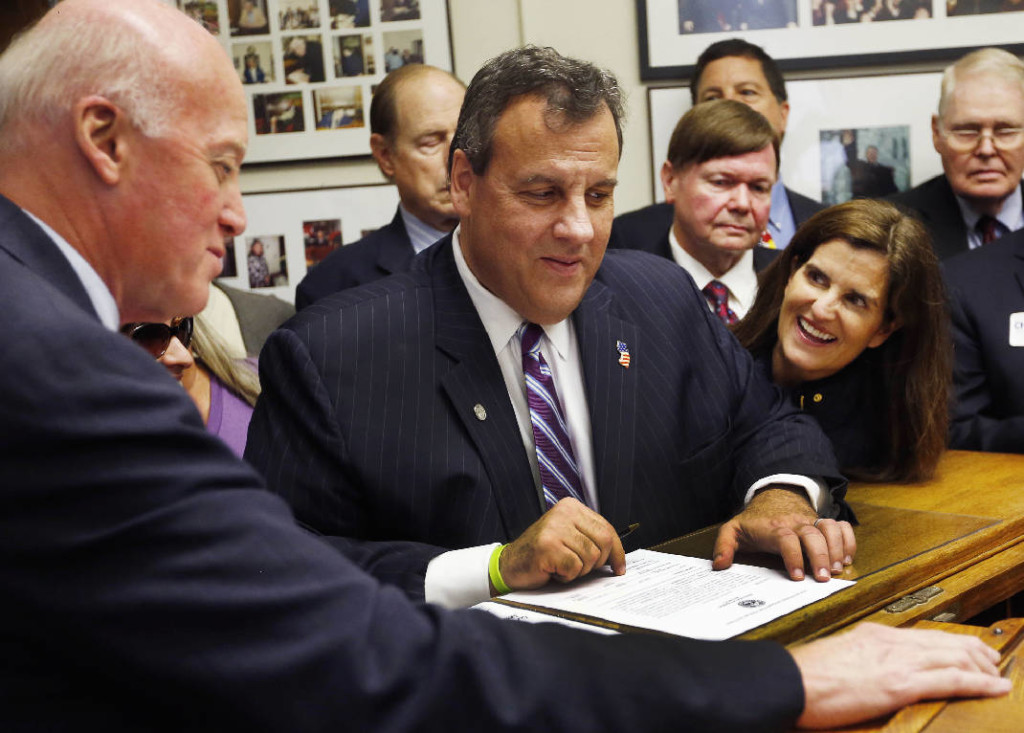
For months, Republican presidential candidates with dwindling bank accounts and negligible support in polls have been finding reasons to stay in the 2016 race. Now, a few must weigh whether they can keep competing after being downgraded or excluded from Tuesday’s fourth GOP debate. New Jersey Gov. Chris Christie and former Arkansas Gov. Mike Huckabee have been bumped to the undercard debate because of low poll numbers, while South Carolina Sen. Lindsey Graham and former New York Gov. George Pataki didn’t qualify for either event. Each of the candidates has so far vowed to stay in the race, keeping the Republican contest crowded with just under three months until the Iowa caucuses kick off the nominating process. Fifteen Republicans are still running for president, while three Democrats are vying for their party’s nomination. “I’ll go there, debate, and as soon as I leave the debate I’ll go to Iowa and get back to work,” Christie said Friday as he filed his paperwork to run in the New Hampshire primary. Struggling candidates can see multiple reasons to keep their White House hopes alive. It’s relatively inexpensive to campaign in Iowa and they can use television appearances as a way to get free publicity. Running for president can be a stepping stone to high-profile television jobs and other lucrative opportunities. And given that the field remains unsettled, there’s always the possibility that an unlikely candidate can make a late surge in one of the early voting states. Huckabee pulled off a surprise victory in the 2008 Iowa caucuses, and former Pennsylvania Sen. Rick Santorum did the same four years later, though neither ultimately secured his party’s nomination. “Candidates never really run out of reasons to run,” said Kevin Madden, a Republican strategist who advised 2012 GOP nominee Mitt Romney. “Many are staying in because the lesson learned from past campaigns is that it’s possible to go from 1 percent to winning the caucuses, or at least beat expectations.” Yet some Republicans are concerned, believing that one of the reasons the race remains unsettled is because there are still so many candidates. Wisconsin Gov. Scott Walker openly worried about that when he abruptly ended his campaign in late September amid a cash shortage. He encouraged other candidates to follow his lead “so voters can focus on a limited number of candidates who can offer a positive conservative alternative to the current front-runner.” The front-runner Walker was referring to was Donald Trump. The billionaire real estate mogul is still atop the GOP field, causing heartburn for establishment Republicans who fear he couldn’t win in the general election — or that his controversial statements on immigration and minorities could hurt the party even if he’s not the nominee. In his typical no-holds-barred style, Trump has been calling out rivals who are struggling and pointing them toward the exits. “There are too many people,” Trump said this week. “If a person has been campaigning for four or five months and they’re at zero or 1 or 2 percent, they should get out.” Other candidates have avoided assessing when their rivals should end their campaigns, a process that is often emotional and deeply personal. But for weeks, Jeb Bush supporters have said the crowded field is contributing to the former Florida governor’s struggle to gain traction. “For Jeb, the field’s got to get narrowed down a lot to shine,” said Philip Taub, a supporter from New Hampshire. Iowa State Rep. Ron Jorgenson said Bush is “suffering just from a lot of fragmentation with so many people in the race.” The New York Times, in a biting editorial, has called for Christie to end his campaign and refocus on his duties as governor. “You are accountable for what happens in New Jersey,” the paper wrote last week. And in Louisiana, Gov. Bobby Jindal‘s pursuit of the presidency has led both Democrats and Republicans in the state to criticize him for being an absentee state executive. Jindal, whose term as governor ends in January, has spent most of the last several months campaigning across Iowa. “I think spending time here, working here is paying off,” the low-polling Jindal said. He is facing a major cash crunch, ending the last fundraising quarter with $261,000 on hand. But his financial disclosure forms show he’s finding ways to campaign cheaply, bunking at affordable hotel chains. Santorum, who is also low on cash, appears to be looking around for deals on online travel sites, with multiple payments to Expedia and Hotels.com. Of course, for most candidates, there eventually comes a time where a lack of money and lack of votes becomes too great to overcome. “They need to recognize that moment and make a move,” Madden said. Republished with permission of the Associated Press.
Anonymous donors send millions to pro-Marco Rubio group
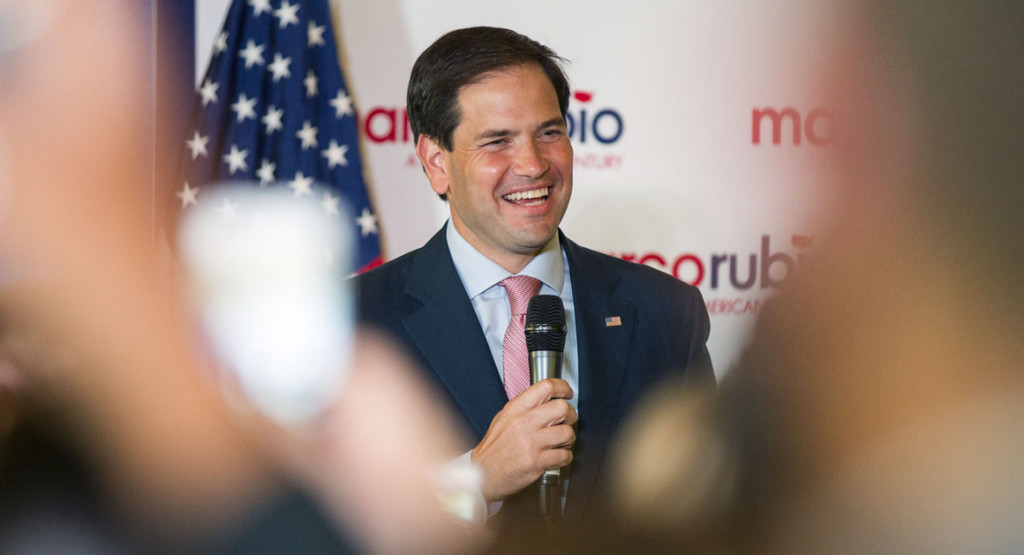
Voters are beginning to learn about Republican presidential hopeful Marco Rubio. What they’re not learning, however, is who is paying to promote his candidacy. The Florida senator is benefiting in unprecedented ways from a nonprofit group funded by anonymous donors. While other presidential candidates also have ties to secret-money groups, the Rubio arrangement is the boldest. Every pro-Rubio television commercial so far in the early primary states of Iowa, New Hampshire and South Carolina has been paid for not by his campaign or even by a super PAC that identifies its donors, but instead by a nonprofit called Conservative Solutions Project. It’s also sending Rubio-boosting mail to voters in those same states. Rubio is legally prohibited from directing the group’s spending, and he has said he has nothing to do with it. But there’s little doubt that Conservative Solutions Project is picking up the tab for critical expenses that the campaign itself might struggle to afford. Although Rubio is rising in national polls, his fundraising has so far been dwarfed by that of former Florida Gov. Jeb Bush, Texas Sen. Ted Cruz and retired neurosurgeon Ben Carson. By the end of June, Bush and his super PAC had amassed $114 million – more than quadruple what Rubio and his super PAC collected. Ahead of what is expected to be a new and disappointing fundraising report next week, Rubio’s aides have stressed that their thriftiness gives them a competitive advantage over campaigns with more money. Left unsaid was that a secret-money group is giving him at least an $8 million assist, according to information provided by advertising tracker Kantar Media’s CMAG. The candidate has presented himself as being opposed to such unaccountable money. “I believe that – as long as it’s being disclosed – that people have a right to participate in our political process,” Rubio said in June at a voter forum in New Hampshire when asked about “the corrupting influence” of money in politics. Conservative Solutions Project does not disclose its donors. Its latest commercial shows Rubio, 44, speaking at the Iowa State Fair. “New ideas for a new age,” a narrator says before ticking through a list of Rubio priorities: “throw out the tax code, overhaul higher education, repeal and replace Obamacare.” Conservative Solutions Project has put $2.3 million into the 30-second ad over the past three weeks and is on deck to spend close to another $1 million keeping it on the air next week, according to CMAG information about advertising placements on broadcast, cable and satellite television. That follows a $3 million summertime ad campaign by the same group that promoted Rubio’s strong opposition to a deal the White House and other countries struck with Iran on nuclear weapons. Conservative Solutions Project also has reserved nearly $2 million in additional satellite TV advertising space through Feb. 16, according to the advertising tracker. Although numerous candidates may ultimately benefit from allied nonprofits, so far it appears that only the entities helping Rubio and Louisiana Gov. Bobby Jindal are advertising in the presidential race. America Next has spent about $380,000 boosting Jindal on TV, CMAG said. Bush also has a secret-money group in his corner, but it hasn’t yet directly communicated with voters. Nonprofits are the edgier cousins of super PACs. Both can accept unlimited amounts of money from wealthy donors, corporations and unions, but only nonprofits can keep those names a secret. In exchange for that privilege, nonprofits are barred from making political activity their primary purpose. But gray area abounds. The two regulating agencies, the Federal Election Commission and the Internal Revenue Service, have been less than aggressive in pursuing potential violators. The Campaign Legal Center in Washington is suing the FEC for failing to require a nonprofit that was active during the 2012 presidential election to file finance reports. “Congress, the Supreme Court and the public have all recognized that voters have a right to know who is spending money to try to influence them on Election Day,” said Paul S. Ryan, the center’s senior counsel. “Transparency is how we hold politicians accountable and make sure they’re not in the pocket of their benefactors.” That’s in line with public opinion: Seventy-five percent of voters, an equal share of Democrats and Republicans, said contributors to unaffiliated groups should be disclosed, according to a CBS News/New York Times poll in June. The Conservative Solutions Project declined to say who gave it the $16 million it claims to have. Although it shares a name and key personnel with the Rubio-focused super PAC, Conservative Solutions PAC, its mutual spokesman, Jeff Sadosky, said the two are “very separate and distinct groups.” He said the nonprofit’s work goes well beyond Rubio’s presidential ambitions, pointing to a detailed study it did last year of voter behavior, which was made available on its website. Additionally, Sadosky said, Conservative Solutions Project highlights on its website the work of other conservative leaders, including Illinois Sen. Mark Kirk and Arkansas Sen. Tom Cotton. But its bent toward Rubio is apparent even there: Visitors to the site are immediately routed to a video of the Florida senator speaking, the same footage on television in early primary states. Republished with permission of the Associated Press.
New PPP national survey has Donald Trump up by 10 points
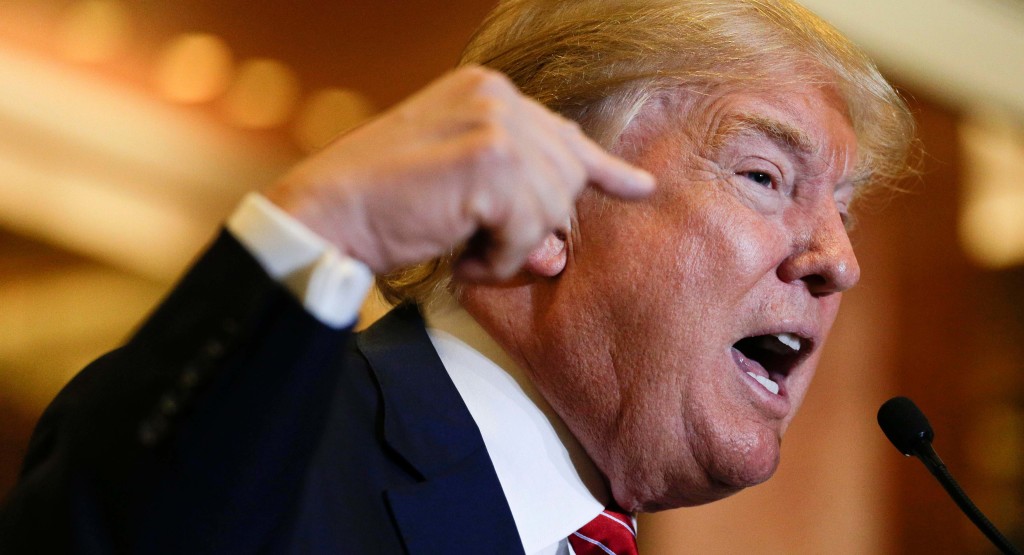
Donald Trump may or may not have already peaked in the Republican presidential contest, but no other candidate gets close to him in yet another national poll of GOP candidates released on Tuesday. The Public Policy Polling survey has Trump up with 27 percent support. Ben Carson is in second place with 17 percent, and Marco Rubio is next with 13 percent. These are all numbers that were roughly the same as when PPP conducted their last survey back in early September. Rounding out the field in fourth place is Jeb Bush with 10 percent, Ted Cruz is at 7 percent, Carly Fiorina is at 6 percent, and Mike Huckabee and John Kasich are each at 4 percent round out the list of candidates with with decent levels of support. Chris Christie, Rand Paul, and Rick Santorum are all at 2 percent, Lindsey Graham, Bobby Jindal, and George Pataki each get 1 percent, and in last place with less than 1 percent is Jim Gilmore. PPP says that Rubio “is really the only candidate who can claim any sort of momentum.” They say that because he’s gone from 5th place at 7 percent to 3rd place at 13 percent over the last five weeks. And he has a 57/24 favorability rating that puts him only behind Ben Carson when it comes to the most broadly liked of the Republican hopefuls. No one other than Rubio has seen more than a 2 point gain since our last poll. Florina’s six percent showing is down two points from a month ago, indicating that her No one’s really lost much ground in the last month either. The biggest decline anyone has seen in their support is 2 points- Trump, Fiorina, and Kasich have all seen that minor dip in the last month. Fiorina being at 6% after registering at 8% on our national poll in late August does suggest that whatever benefit she received from her strong debate performance last month may have already receded. Bush’s 10 percent showing is actually slightly up from a month ago and puts him in the top four, but he’s becoming more and more unpopular with Republican voters overall. Just 34 percent have a favorable opinion of him to 49% with a negative one. His struggles continue to be fueled by strong distrust from voters who identify themselves as ‘very conservative’- his favorability with them is 26/56 and only 2 percent support him for the nomination. Most interestingly, Republican primary voters are more liberal than all of the candidates when it comes to gun control and the economy. Eight-two percent of primary voters support background checks on all gun purchases, to only 13 percent opposed. Supporters of all 15 GOP hopefuls are in support of expanded background checks, including 82/18 support for them from Bush voters. There’s also 54 percent support among GOP voters for increasing the minimum wage to at least $10 an hour. Only 26 percent support keeping it where it is right now and 18 percent support eliminating the federal minimum wage altogether.

